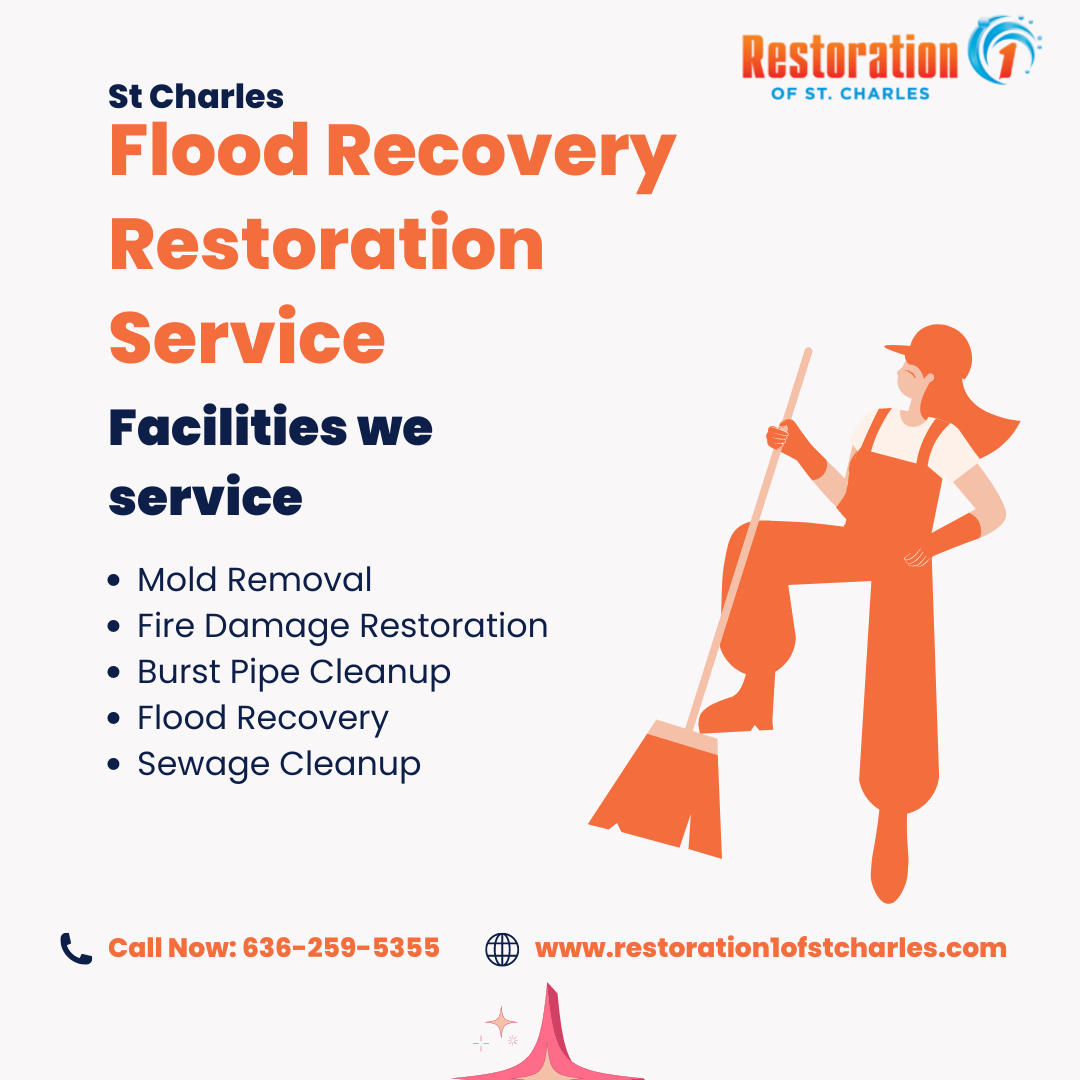Flooding is a common concern for homeowners in St. Charles, especially given the area’s unique weather patterns and geographical features. Whether you're a long-time resident or new to the community, understanding the causes of flooding is essential to protect your property and avoid costly repairs. In this article, we’ll explore the top 10 causes of flooding in St. Charles and provide you with practical tips on how to prevent or minimize flood damage.
Introduction
Flooding can be devastating, causing extensive damage to homes, cars, and personal belongings. In St. Charles, where the weather can be unpredictable, flooding is a real threat that many homeowners face. The key to minimizing flood damage is to understand what causes it and how to prepare. In this article, we’ll take a closer look at the top 10 causes of flooding in St. Charles. We’ll also discuss steps you can take to protect your home, and how to deal with flood damage if it occurs.
1. Heavy Rainfall
St. Charles experiences significant rainfall throughout the year, particularly during the spring and summer months. Heavy rain can overwhelm drainage systems, leading to water accumulation in low-lying areas. When the ground becomes saturated, the excess water has nowhere to go, resulting in flash flooding that can impact homes and vehicles.
Prevention Tip: Ensure your gutters and downspouts are clean and in good condition to help direct rainwater away from your home. Consider installing a rain garden or permeable paving to reduce runoff.
2. River Flooding
The proximity of St. Charles to the Missouri River makes river flooding a serious concern. When the river levels rise due to prolonged rainfall or snowmelt upstream, it can overflow its banks and inundate nearby areas. River flooding can cause significant damage to homes, especially those close to the river.
Prevention Tip: If you live near the river, monitor water levels regularly and have a flood plan in place. Elevate valuable items and consider flood-proofing your basement.
3. Poor Drainage Systems
Older neighborhoods in St. Charles may have outdated or insufficient drainage systems. When these systems are unable to handle large volumes of water, it can lead to localized flooding. This is particularly common in areas with aging infrastructure or where new developments have altered natural drainage patterns.
Prevention Tip: Regularly inspect and maintain your property’s drainage system. If you notice standing water or slow drainage, address the issue promptly by consulting a professional.
4. Sewer Backups
During heavy rainstorms, the sewer system can become overwhelmed, leading to backups that cause flooding in homes. Sewer backups not only bring water into your home but also introduce hazardous materials that can pose health risks.
Prevention Tip: Install a backwater valve to prevent sewage from backing up into your home. Regularly maintain your sewer lines to ensure they are clear of debris and functioning properly.
5. Snowmelt
In the winter and early spring, melting snow can contribute to flooding, especially if the thaw is rapid. As snow melts, it can lead to an excess of water that the ground and drainage systems cannot absorb quickly enough, resulting in localized flooding.
Prevention Tip: Clear snow away from your home's foundation to prevent water from seeping into your basement. Ensure that downspouts direct meltwater away from your property.
6. Blocked Storm Drains
Storm drains are designed to carry rainwater away from streets and homes. However, these drains can become blocked with debris, leaves, and trash, particularly after a storm. When storm drains are blocked, water can back up and flood streets and nearby properties.
Prevention Tip: Regularly check and clear storm drains near your home. Report any blockages to local authorities to ensure they are addressed promptly.
7. Urbanization
As St. Charles continues to grow, urbanization has led to the development of more paved surfaces, such as roads, parking lots, and buildings. These surfaces prevent water from naturally soaking into the ground, increasing the risk of flash flooding during heavy rains.
Prevention Tip: Incorporate green spaces, such as gardens or permeable pavement, on your property to reduce runoff. Support local initiatives aimed at improving urban planning to mitigate flood risks.
8. Levee Failures
Levees are critical structures designed to protect areas from flooding by holding back river water. However, levees can fail due to poor maintenance, unexpected surges in water levels, or natural wear and tear. When a levee fails, it can cause catastrophic flooding in nearby areas.
Prevention Tip: Stay informed about the condition of levees in your area. Participate in community efforts to maintain and reinforce these critical structures.
9. Climate Change
Climate change is contributing to more extreme weather events, including heavy rainfall and rising river levels. These changes increase the likelihood of flooding in St. Charles and other areas, making it more challenging for homeowners to predict and prepare for flood events.
Prevention Tip: Stay informed about climate trends and how they may impact your area. Consider investing in flood insurance to protect your home from potential damage.
10. Groundwater Flooding
In some areas of St. Charles, high groundwater levels can cause flooding, particularly after prolonged periods of rain. Groundwater flooding occurs when the water table rises above the surface, leading to water seeping into basements and lower levels of homes.
Prevention Tip: Waterproof your basement and install a sump pump to manage groundwater intrusion. Regularly check the water table levels in your area, especially after heavy rains.
Conclusion
Flooding is a serious concern for homeowners in St. Charles, but understanding the causes can help you take proactive steps to protect your property. From heavy rainfall to urbanization, various factors contribute to flooding in the area. By staying informed and prepared, you can minimize the impact of flooding on your home and avoid costly repairs.
If you’re dealing with flood damage or want to learn more about how to protect your home, consider reaching out to professionals for St. Charles Flood Damage Recovery services. They can provide you with the expertise and support you need to get back on track.





Comments